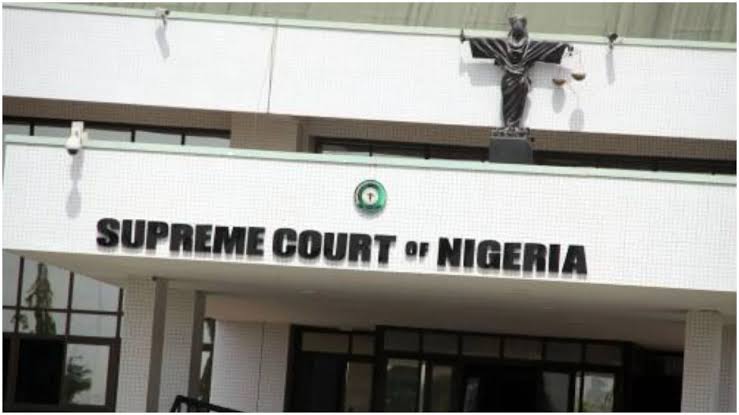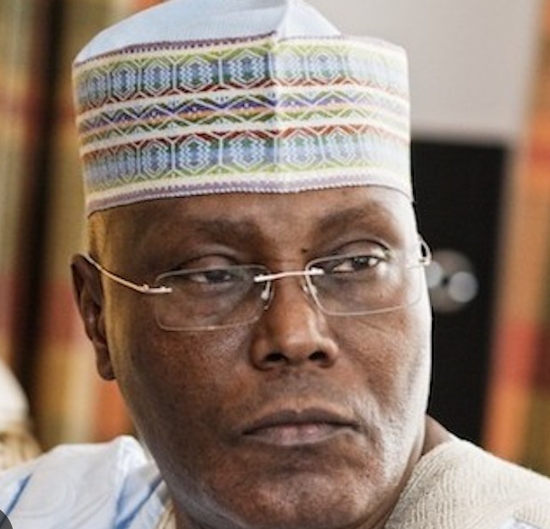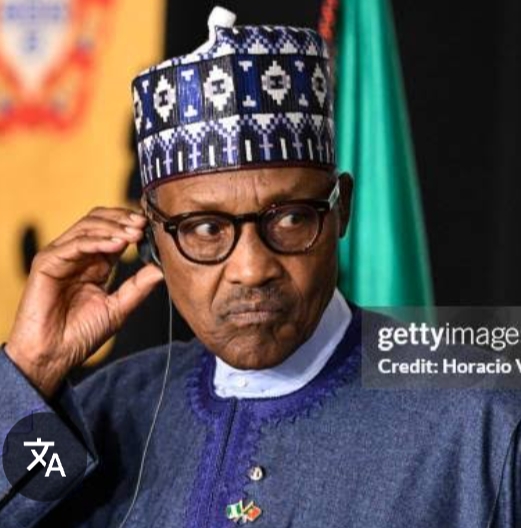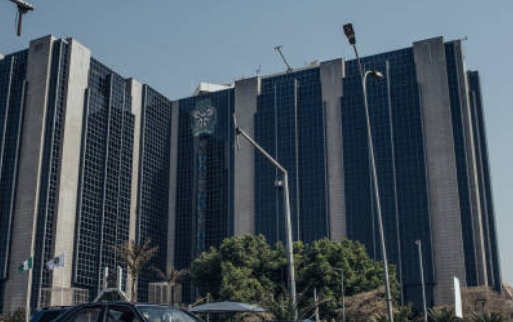News
Supreme Court to rule on 16 govs’ suit against EFCC today

Following the suit filed by the 19 state governments contesting the constitutionality of the laws that established the Economic and Financial Crimes Commission in the country, the Supreme Court is set to rule on their request today.
The governors and the EFCC are eagerly awaiting the judgment of the apex court, which would confirm the legality or otherwise of the anti-graft commission.
The state governments, in their suit, had argued that the Supreme Court, in Dr Joseph Nwobike Vs Federal Republic of Nigeria, held that it was a United Nations Convention against corruption that was reduced into the EFCC Establishment Act and that in enacting the law in 2004, the provision of Section 12 of the 1999 Constitution, as amended, was not followed.
They argued that in bringing a convention into Nigerian law, the provision of Section 12 must be complied with.
According to the plaintiffs, the provision of the Constitution necessitated the majority of the states’ houses of assembly agreeing to bring the convention in before passing the EFCC Act and others, which was allegedly never done.
The argument of the states in their present suit, which had reportedly been corroborated by the Supreme Court in the previous case mentioned, is that the law, as enacted, could not be applied to states that never approved of it, in accordance with the provisions of the Nigerian constitution.
Hence, they argued that any institution so formed should be regarded as an illegal institution.
The suit was initiated by the Kogi State government and joined by the Ondo, Edo, Oyo, Ogun, Nasarawa, Kebbi, Katsina, Sokoto, Jigawa, Enugu, Benue, Anambra, Plateau, Cross-River and Niger.
A seven-member panel of justices, led by Justice Uwani Abba-Aji, on Tuesday, fixed October 22 for a hearing.
The EFCC, however, expressed dismay over the call for the overhaul of their institution, stating that those pushing for such are “feeling the heat of its work.”
The EFCC’s Director of Public Affairs, Wilson Uwujaren, disclosed this in an interview on Channels Television’s The Morning Brief programme on Monday.
Uwujaren defended the significance of the commission, stating that Nigerians needed to fight against corruption.
“We are shocked by what is happening. Nigerians should see through this shenanigan and oppose it because I don’t see how this country can survive without the EFCC, given the kind of corruption problem that we have. Nigeria cannot do without the EFCC.
“I am worried that, with the kind of problem we have with corruption in this country, some people would go to court to challenge the legality of the EFCC.
“For citizens in their states, I am not sure that the EFCC is their greatest problem. I doubt that this is the case. What you see playing out is simply people who are feeling the heat of the work of the EFCC and who want to derail what is going on within the EFCC.
“They see the EFCC as a threat, which is what is playing out. I think Nigerians can see through the gimmick of those who are behind the challenge to the legality of the commission,” Uwujaren said.
The EFCC official noted that those behind the call for the overhaul were determined to “derail” the commission’s anti-corruption fight.
“So, people who are concerned about transparency and accountability will wish for the EFCC to be ‘killed’. Let me use the word ‘killed’ because that is the agenda.
“They simply want to derail the fight against corruption because they don’t want accountability in their domains,” he said.
Meanwhile, lawyers and Senior Advocates, Dr Olisa Agbakoba and Femi Falana, have expressed divergent views on the constitutionality of the EFCC.
Agbakoba, a former President of the Nigerian Bar Association, wrote to the National Assembly about constitutional issues related to law enforcement agencies in Nigeria and factors inhibiting the government’s objective of abolishing corruption, as stated in Section 13 of the Constitution.
In two separate letters to the Senate and House of Representatives, dated October 14, 2024, he stated that the EFCC was an unlawful organisation that he believed was “unconstitutionally established.”
He said, “I very strongly believe the EFCC is unconstitutionally established. The powers under which it was established go beyond the powers of the National Assembly. The EFCC is an unlawful organisation.”
However, three days later, Falana, a human rights activist, in his letter to the National Assembly, opposed Agbakoba’s view.
He insisted that the former NBA president’s position was based on the premise that the establishment of the EFCC violated the basic principles of federalism.
The Executive Director of Africa Center for Media Information and Literacy, Chico Onumah, reacting to the suit, noted that there is nothing unconstitutional about EFCC as the laws that brought about its existence went through due process.
“The commission was set up by an Act over two decades ago and I don’t imagine that there is anything wrong with that.
“As far as I know, the laws that led to the setting up of the commission went through the due process.
“The EFCC I know is a legal institution, the laws that set it up are there like ICPC and it went through the normal process. What is unconstitutional about EFCC? The constitution empowers the National Assembly to pass laws like this so I don’t see anything unconstitutional about this.
“They are legal institutions and I see nothing unconstitutional about the anti-corruption agencies,” he said.
Speaking further he noted that the EFCC had been doing its fair share in the fight against corruption, even though there was room for improvement.
“They have been able to fight corruption. You can’t imagine where we are coming from and where we are today. Corruption is one of the biggest challenges in this country and whether we like it or not, these agencies have contributed their quotas.
“Of course, there’s room for more to do better but within the limited resources and manpower, I think they’ve done fairly well,” he added.
The Deputy Director of the Socio-Economic Rights and Accountability Project, Kolawole Oluwadare, stressed that the functionality and constitutionality of EFCC were not in doubt.
He said, “The constitutionality of the EFCC is not in doubt. The functionality of EFCC as an anti-corruption agency is also not in doubt.
“If the legal argument was made four years ago on the constitutionality of EFCC, the question that Nigerians who are interested in the transparent and economic growth of Nigeria on the state governors suit is to ask what is the end game and what are they afraid of?”
The Executive Director of the Civil Society Legislative Advocacy Centre, Auwal Rafsjani, condemned the state governments’ action, stating that the suit threatened not only the fight against corruption but also the autonomy of local governments—a fundamental pillar of grassroots democracy.
He said, “The recent legal battles waged by these governors represent a blatant disregard for the rule of law and an attempt to undermine Nigeria’s progress in establishing institutions that hold public officials accountable.
“This calls for deep concern and unequivocal condemnation of the recent actions of some state governors targeted at EFCC, Nigerian Financial Intelligence Unit and by implications other anti-corruption agencies in the country, such as the Independent Corrupt Practices and Other Related Offences Commission, the Code of Conduct Bureau and key law enforcement agencies like the Nigeria Police Force; preparatory to the commencement of full implementation of the recent Supreme Court judgment with regards to local government autonomy in Nigeria.”
News
Kill your 2027 election, PDP, LP chieftains advise Atiku

By Kayode Sanni-Arewa
A member of the National Executive Committee of the Peoples Democratic Party, Diran Odeyemi, and a chieftain of the Labour Party, Anslem Eragbe, have advised former Vice President Atiku Abubakar to kill his 2027 presidential election ambition.
Both Odeyemi and Eragbe said the South should be allowed to rule for eight years.
They said the 2027 southern president might not necessarily be President Bola Tinubu.
Eragbe, in an interview with Sunday PUNCH, argued that Atiku should not have contested the 2023 presidential election because it was the turn of the South to produce a president.
He said, “Atiku was not supposed to contest the 2023 presidential election because it was the turn of southern Nigeria. It is the turn of the South till 2031.
“Being a former Vice President of Nigeria for eight years; Atiku knows Nigeria’s power drill and equation. He should support younger Nigerians to power and provide guidance in 2027.”
Asked if the former Vice President would breach any law if he chooses to run for the nation’s highest office in 2027, Eragbe said the PDP stalwart “is entitled to his ambition and aspirations, adding however that “2027 – 2031 is for southern Nigeria.”
According to him, the 2027 presidency shall remain in southern Nigeria and should be zoned to the South-South region.
“It should be further micro-zoned to the (defunct) mid-Western region. I mean the defunct Bendel, now Edo and Delta states. We expect the major political parties to do this for equity, justice, fairness and parity.
“However, should President Bola Tinubu, win the 2027 presidential election and continue till 2031, power shall return to Northern Nigeria,” he added.
The former President of the Student Union Government of Ahmadu Bello University, Zaria, added that when compared with other geo-political zones in the country, the South-South had spent the least number of years on the presidential seat.
“The region that has ruled the least in Nigeria is the South-South with only five years under Goodluck Jonathan and should rule Nigeria again beginning from 2027.
“When put together, the North-Central spent a total of 17 years and 11 months, North-West, 17 years, three months; North-East, 10 years, three months; South-West, 15 years, four months by the time Tinubu finishes his term in May 2027; South East spent five years and nine months and the South-South, the only region to spend five years only on the presidential seat,” he added.
Eragbe called on the political parties to identify credible politicians, regardless of their financial status, to fly their flags for the various elective offices, stressing that 2027 would be another opportunity to right the wrongs of the past.
Speaking with Sunday PUNCH, Odeyemi stated that the ex-vice president’s participation in the 2023 presidential election and his perceived ambitions for 2027 were the causes of PDP crisis.
He charged Atiku to bury his ambition, adding that once the former vice president failed to declare interest in 2027, the crisis in the party would be over.
The 2023 election was originally supposed to be between southerners, as former President Muhammadu Buhari, a northerner, had just completed eight years in office. However, Atiku insisted on exercising his rights, which is why there is a crisis in the PDP,” he stated.
News
Why Buhari govt was shoved aside – IBB

By Kayode Sanni-Arewa
Ex-military head of state, Ibrahim Badamasi Babangida (IBB), has stated that he shoved aside Muhammadu Buhari’s regime because he believed his policies were detrimental to the nation’s progress.
The former military leader disclosed this in his autobiography, ‘A Journey In Service’, launched in Abuja on Thursday.
Babangida was chief of staff to Buhari, who ousted Shehu Shagari’s civilian government in the December 31, 1983 coup.
After the military coup that replaced the civilian government of Shehu Shagari with a military regime led by Major General Muhammadu Buhari, Ibrahim Babangida assumed the Chief of Army Staff role.
However, he became increasingly dissatisfied with the Buhari government’s policies and leadership style, which he described as draconian.
Recalling how he journeyed from Minna to Lagos on August 27, 1985, to assume office, Babangida said tension had already begun to build up since the start of the year, and a change in leadership had become necessary.
He said, “On that day, it became my lot to step into the saddle of national leadership on behalf of the Nigerian armed forces. The change in leadership had become necessary as a response to the worsening mood of the nation and growing concern about our future as a people. All through the previous day, as we flew from Minna and drove through Lagos towards Bonny Camp, I was deeply reflecting on how we as a nation got to this point and how and why I found myself at this juncture of fate.
“By the beginning of 1985, the citizenry had become apprehensive about the future of our country.
The atmosphere was precarious and fraught with ominous signs of clear and present danger. It was clear to the more discerning leadership of the armed forces that our initial rescue mission of 1983 had largely miscarried. We now stood the risk of having the armed forces split down the line because our rescue mission had largely derailed. If the armed forces imploded, the nation would go with it, and the end was just too frightening to contemplate.
“Divisions of opinion within the armed forces had come to replace the unanimity of purpose that informed the December 1983 change of government. In state affairs, the armed forces, as the only remaining institution of national cohesion, were becoming torn into factions; something needed to be done lest we lose the nation itself. My greatest fear was that division of opinion and views within the armed forces could lead to factionalisation in the military. If allowed to continue and gain root, grave dangers lay ahead.”
News
How CBN Spent $8bn On Naira Defence Against Dollar At FX Market

By Kayode Sanni-Arewa
The Chief Executive Officer of Financial Derivatives, Bismark Rewane, has revealed that the Nigerian government, through the Central Bank of Nigeria, has spent almost $8 billion defending the naira at the foreign exchange market in the last months.
Rewane, a renowned economist, disclosed this at the weekend in an interview with Channels Television.
He was reacting to the decision by the Monetary Policy Committee to retain the country’s interest rate at 27.50 percent at the same time, maintaining other MPR parameters.
Explaining the reason the Naira has appreciated to N1,505 and N1,507 across parallel and official foreign exchange markets, he noted that the apex bank has several initiatives to support the country’s currency.
“We’ve also borrowed $4 billion in bond issues. When you take a look at that, you’ll see there is a lot of work. We’ve actually spent almost $8 billion trying to support the naira at current levels,” Rewane stated.
According to him, Nigeria’s January inflation figure, which dropped to 24.48 percent after the Consumer Price Index rebasing, does not reflect the reality of ordinary Nigerians.
“There’s no way that inflation can reduce by 10% in a short period. The man on the street does not believe that inflation has come down as sharply as that,” he said.
-

 News19 hours ago
News19 hours agoJust in : Senator Gumau is dead
-

 Metro12 hours ago
Metro12 hours agoInsecurity! Gunmen invade church, slash pastor’s 2 fingers
-

 News20 hours ago
News20 hours agoRep Salam Congratulates Governor Adeleke On Successful Conduct Of LG Elections
-

 Metro12 hours ago
Metro12 hours agoFire engulfs MTN office in Oyo
-

 News20 hours ago
News20 hours ago10th NASS Committed to Constitutional Reforms – Kalu
-

 News19 hours ago
News19 hours agoI have never insulted President Tinubu in my entire life”-Gov Adeleke
-

 News19 hours ago
News19 hours agoPolice seal OSSIEC office, officials nabbed, says chairman
-

 Foreign12 hours ago
Foreign12 hours agoPentagon set to sack 5400 staff as attack hits Trump’s downsizing plan







